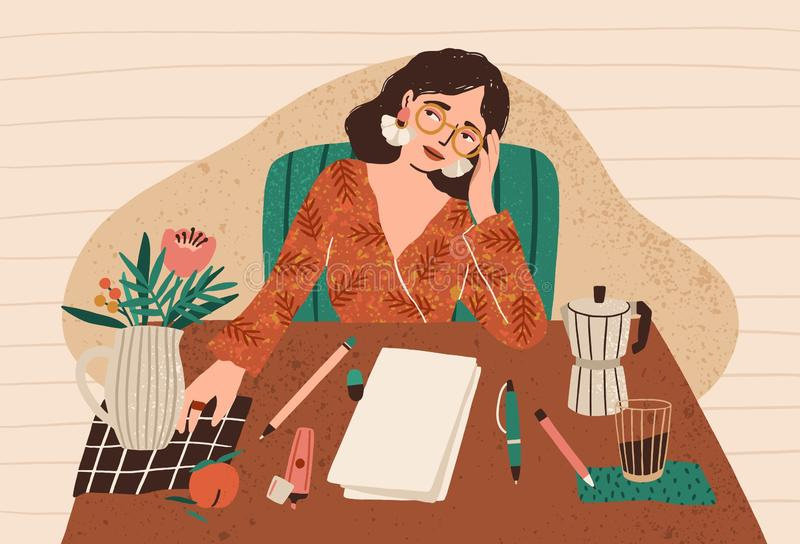I’ve been thinking about my relationship with work and time and how there never seems to be enough to do the work. 24 hours is hardly enough time to think about the work, work up the courage to attempt it, walk away from it, try again, and finally finish. The way the process works for me is that I walk away and spend so much agonizing over the work, how it will be perceived, whether it’s good, and whether I’m good that by the time I return to it, I am both depleted and discouraged and give very little to the actual work.
It’s the worst part of procrastinating for me. I’ve moved away from waiting to the final minute and being revved up enough to put out the best to being exhausted and full of shame that I can’t seem to plan my time better. This morning, as I agonized over what to write this month, I found this piece by Rachel Syme for the New Yorker. In the piece titled (very aptly) “What Deadlines do to Lifetimes,” Syme writes briefly about Esther Murphy, an American expatriate living in France who died before she could finish writing a biography of Françoise d’Aubigné.
Syme writes that “for three decades, Murphy hemmed and hawed, insisted that the book was “about a third done,” and failed to commit her grand theories to paper” before she died at 65.
Syme writes about other things in the piece, of course. But I keep thinking about Esther, and why she couldn’t just write the damn book. I don’t think that’s what Syme wants us to take away, but I imagine Murphy literally hemming and hawing, talking about the book in abstracts and eventually evading the question, very intelligently I’m sure. Syme writes that Murphy was a brilliant talker and generally brilliant individual, so I can only imagine that talent was not the issue.
I was telling someone a few days ago that when I sign up to do something, I feel approximately two seconds of confidence in my actual ability to do the thing. Every moment after that feeling of confidence passes until the thing is done is pure agony. Even at the end, when I have finished and I have something to show for it, I don’t feel any better. My post-mortem involves me telling myself that I didn’t actually “do” the thing, that instead, I barrelled my way to the finish line and what propelled me wasn’t talent or hard work but shame. It’s quite dark and twisted writing this out but it’s true.
I wonder if, whenever Murphy sat down to write, she spent more time berating herself for never writing and feeling intense exhaustion at the end and just deciding to lie down and try again the next day. That’s what I do, and I know it’s not sustainable. There has to be a better way, right? The thought of writing is exciting, intoxicating almost. And reporting is mind-stretching work that feels like a gift. Putting those things together and having people connect with the work and see the work is a joy. Plus, it doesn’t hurt that I get paid to do this, too.
The point of this newsletter is to say that I’m in search of a better way. A way that doesn’t involve the heaviness of shame, fear, self-loathing, anger, and exhaustion. A way that allows me to tap into the innate feeling of joy that I associate with this work and the privilege I feel knowing that I’ve been given a chance to do it. Let me know if you have any thoughts, tips, or tricks. You can email me here or leave a comment below.
they (w)rote.
I miss New York and this piece by Stella Bugbee for The Cut about Dr. Zizmor and the city’s quintessential style is a balm.
Sisonke Msimang writes breathtakingly about COVID, love, life, and death for Guernica.
Evan Ratliff’s look into the rise and fall of Hushpuppi (AKA the billionaire Gucci master) is on Bloomberg and it’s worth your time.
For the New York Times, Emily Bazelon writes about Yutico Briley, a young man who was sentenced to 60 years without parole at age 19, and her attempt to free him.
For Africa is a Country, Victor Makanjuola and Matthew M. Heaton write about what happens when Africa’s mental health professionals migrate outside the continent.
For the Washington Post, Samantha Schmidt, Brittany Renee Mayes, and Nia Decaille write about what it’s like surviving as a Black transgender woman in Baton Rouge.
(w)rite back.
Write me back. How do you make doing your work an exercise in joy and not shame?


